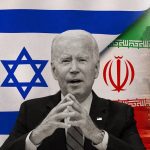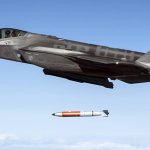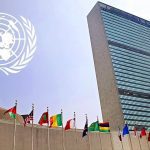After decades of military neutrality, Sweden and neighboring Finland decided to apply for membership in the North Atlantic Treaty Organization (NATO) in light of rising security concerns among European countries as a result of the Russia-Ukraine war. Once their membership process is complete, it will be one of the most significant additions to NATO because it will bring two militarily sophisticated armies on Russia’s doorstep.
However, eight months after applying to join NATO, the two countries still lack the necessary backing to be accepted. Twenty-eight countries in NATO have given their stamp of approval to the Scandinavian countries’ membership, with only Hungary and Turkey holding out.
Budapest has hinted that its parliament will soon vote to approve Finland and Sweden’s accession to NATO, leaving only Turkey as the remaining obstacle. Turkish President Recep Tayyip Erdogan is using the situation to his advantage to gain concessions and project himself as a capable leader on the global stage. Finland appears to be making greater strides toward accommodating Turkish demands, while tensions between Turkey and Sweden continue to dominate the scene and slow Sweden’s entry into NATO.
Kurdish Challenge
Sweden is home to approximately 100,000 Kurds out of a total population of approximately 10 million. In the 1960s, Kurds first immigrated to Sweden as migrant workers from Turkey, Iraq, Iran, and Syria. Later, as part of a worldwide influx of political exiles and opposition activists drawn to Sweden by its openness and political acceptance, Kurds continued to immigrate to Sweden. They escaped the policies of former Iraqi President Saddam Hussein, the 1979 Iranian Islamic Revolution, the wave of discrimination and harassment in Syria, and the political violence committed against them by Turks in the 1970s and after the 1980 coup.
Following the 2016 failed coup attempt, political repression campaigns drove a new wave of Kurds and Turks to Sweden on the grounds that they were associated with the Fethullah Gulen movement, which Ankara has designated as a terrorist organization. Many pro-Kurdish independence and activity movements were active in Sweden, which infuriated Ankara. Ankara repeatedly pleaded with Stockholm to put an end to these movements, claiming they were intended to harm Turkey, but Sweden made no response. The Swedish-Finnish application to join NATO in May 2022 provided Turkey with leverage in this matter.
While Sweden was the second country after Turkey to declare the Kurdistan Workers’ Party (PKK) a terrorist organization in 1984, it continues to support the People’s Defense Units (YPG) and its political arm, the Democratic Union Party (PYD), which Turkey regards as an extension of the PKK. In November 2021, the Social Democrats reached an agreement with Amineh Kakabaveh, a Kurdish representative of Iranian descent, allowing the leader of the Swedish Social Democratic Party, Magdalena Andersson, to become the country’s first female prime minister, which was viewed as a strengthening of ties with the Kurds. Sweden also welcomed the YPG’s women’s wing leader, Nesrin Abdullah, and the PYD’s co-chairman, Salih Muslim, who was interviewed by Swedish state television and posed for a photo with former Swedish Foreign Minister Ann Linde.
In order to avoid the Turkish veto over their NATO membership, Sweden and Finland reached an agreement with Ankara in June 2022 aimed at pressuring Ankara to make concessions on their claims and assuage its concerns. Under the terms of this agreement, they agreed to resume arms sales to Turkey, increase military cooperation with Turkey, establish a structured mechanism for the exchange of intelligence information in the fight against terrorism and organized crime, cooperate fully with Turkey in the fight against the PKK and its branches, abstain from supporting the YPG, the PYD, and the Fethullah Gulen movement, and take concrete steps to extradite criminals and deter them from returning to their homelands. To seal the deal, Sweden lifted the arms embargo against Turkey that had been in place since 2019 over worries about military atrocities committed against Kurdish militants in Turkey, Syria, and Iraq, returned three wanted individuals to Turkey, approved anti-terrorist constitutional amendments that went into effect on 1 January 2023, and reaffirmed its commitment to the swift and thorough processing of pending extradition requests in a letter to Erdogan on 7 October 2022.
After the most recent parliamentary election in September 2022, the newly elected center-right government cut ties with the PYD and the Kurdish YPG. On 21 October 2022, Sweden’s new prime minister of the center-right, Ulf Christerson, made his first foreign trip to Turkey. Two days later, Tobias Billström, the foreign minister of Sweden, declared that his country would not tolerate the PKK. He did not, however, mention the Gulen movement or reverse his stance on political asylum or extradition. In spite of this, tensions between the Turkish and Swedish governments have escalated in recent days, to the point where they have become an impediment to the Turkish parliament’s vote approving Stockholm’s membership in NATO, in addition to the traditional sources of disagreement, which include:
• Sweden’s refusal to hand over journalist Bulent Kines, the academic and former editor-in-chief of the now-defunct English daily newspaper Zaman, whom Erdogan specifically named, along with the extradition of 130 other individuals whose identities were not disclosed but whom he described as terrorists, in exchange for his country’s ratification of Stockholm’s NATO membership application. However, the Swedish Supreme Court rejected the request, citing the possibility of persecution for political reasons. The Swedish government upheld this decision, and President Ulf Christersson argued that his government was compelled to do so and that there was no room for it to change.
• The Stockholm government granting permission to Danish far-right activist Rasmus Paludan to hold a demonstration outside the Turkish embassy and burn a copy of the Holy Quran, and a Kurdish organization called the Swedish Solidarity Committee for Rojava posting a video on social media comparing Erdogan to Italian fascist leader Benito Mussolini, in which Erdogan was depicted as an effigy hanging by feet, mimicking Mussolini’s method of execution. Add to this the statement made by the Swedish Prime Minister, in which he acknowledged that the Turkish government imposes a series of demands that his country cannot and will not meet.
• The cancellation of a scheduled visit by Swedish Defense Minister Pal Johnson to Ankara on January 27, as Turkish presidential spokesman Ibrahim Kalin stated that Turkey is not in a position to approve Sweden’s accession to NATO. This was preceded by the cancellation of a meeting between Turkish Parliament Speaker Mustafa Sentop and his Swedish counterpart, Andreas Norlin, scheduled for 17 January.
Ankara’s Drivers
The Kurdish factor is not the only reason for Turkey’s opposition to Sweden’s NATO membership, as Erdogan was motivated by a number of internal and external factors, including:
• Titillating Turkish Nationalists: Erdogan’s foreign policy is largely influenced by the upcoming presidential and parliamentary elections in Turkey, which are set for May. Erdogan, whose popularity at home has been dwindling due to the country’s weakening economy, rising prices, and high cost of living, is trying to shore up his support by appealing to the public’s strong nationalism by projecting himself as a strong leader capable of taking on the West, defending Turkey’s interests abroad, and pressuring NATO to make concessions in the “war against Kurdish terror”, an issue that elicits strong nationalist sentiment. As a result, it is unlikely that Erdogan will back down from his demands without securing sizable concessions from Sweden as long as doing so advances the political agenda of the Justice and Development Party; otherwise, he risks losing swing voters from the voting base of the ruling party. Thus, the timing of ratification of Sweden and Finland’s request is dependent on electoral calculations. Ibrahim Kalin, spokesman for the Turkish president, suggested that the chances of ratification before the June 2016 NATO summit had decreased, setting a deadline of no more than two and a half months before Parliament’s pre-election break. Meanwhile, Stockholm will likely require about six months to put the necessary legislation in place to satisfy Turkey’s demands by suppressing terrorism and armed Kurdish elements inside Sweden, which extends past the date of the date of the Turkish general election.
• Sweden’s Human Rights Discourse: Swedish foreign policy prioritizes issues of human rights, gender equality, and pluralism, which puts pressure on the Erdogan-led Justice and Development Party’s (JDP) conservative political culture. The Swedes pushed for a human rights-based strategy in dealings with Turkey within the institutions of the European Union, which bothered Ankara for years. Mevlut Cavusoglu, the then-foreign minister of Turkey, publicly argued with Anne Lind, the then-foreign minister of Sweden, in 2020, accusing her of applying two sets of standards and lecturing Turkey on human rights.
• The Russian Partner: It appears that Erdogan is reluctant to enrage the Kremlin because of their shared interests, the variety of their arenas, and the diversity of their fields. This is especially true given that NATO expansion represents one of the West’s long-term strategic gains while, at the same time, it represents a serious strategic setback for Russia because it means that the alliance will be extending its presence along its borders. Therefore, Ankara may want to strike a balance between its challenging and crucial relations with Russia and its strategic alliances with NATO and the Ukraine.
• Concessions from NATO Allies: Turkey has expressed dissatisfaction with NATO’s lack of consideration for its security concerns in recent years, and disagreements have returned on a number of occasions, particularly with Greece and France on issues relating to overflights over the Aegean Sea and the maritime borders of the eastern Mediterranean. This is why Ankara is using the debate over NATO expansion as a leverage to get what it wants. The most significant of these concessions is probably the pressure put on Washington to approve a $20 billion deal to buy 40 F-16 fighters that would enable Ankara to modernize and expand its current air fleet, as well as to have the US cut ties with the US-backed Syrian Democratic Forces. However, the Biden administration did not make it clear to Ankara that approving Sweden and Finland’s NATO membership would be the main and only requirement for concluding the F-16 deal, leaving Erdogan to decide whether or not to give in to pressure from Washington.
In short, appeasing Turkey won’t be simple or quick. While Stockholm is likely to attempt to reduce tensions during the next phase in order to complete its NATO membership, which is a priority for its national security, Finland has hinted at the possibility of joining on its own, before calming the situation and stating that a common path is still possible.
Turkey will continue to exert maximum pressure to obtain concessions, and Erdogan will keep an eye on the date of the upcoming Turkish elections in May, which is considered a major factor in determining the decisions and behaviors of his foreign policy, which he employs in an effort to retain power. Therefore, 14 May is significant in terms of achieving a breakthrough in Ankara’s position on Sweden and Finland’s NATO membership, despite the probable difficulty of approving their membership before the presidential elections.












